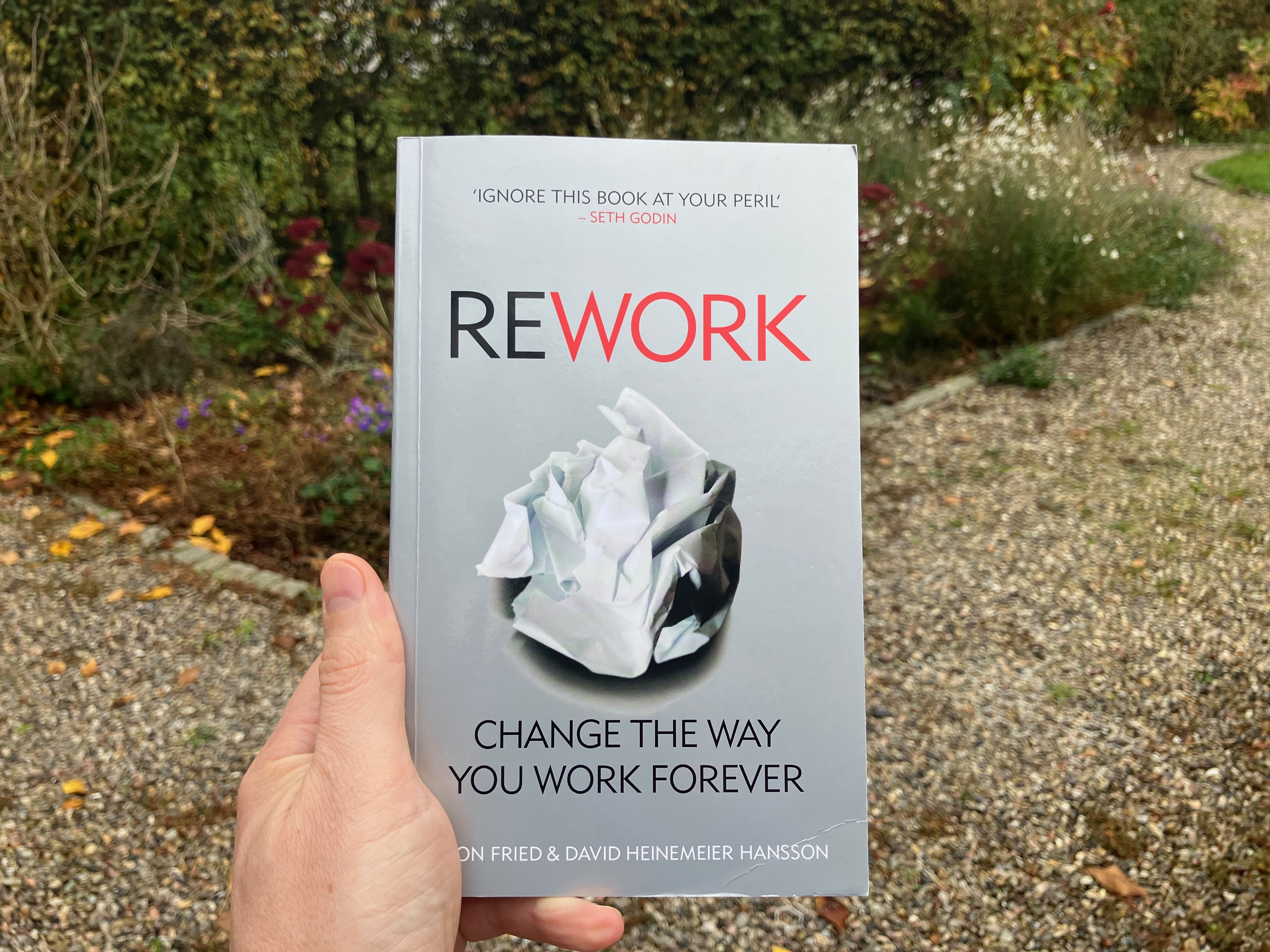Review "Rework"
The byproduct of two authors' daily work, poured into a book. I've read it and can only recommend it under one condition: Have a pen, paper, and the leisure to question things while reading.

About the Authors
Jason Fried and David Heinemeier Hansson are the founders of the software company 37signals, now known as Basecamp. Fried has been responsible for Basecamp's product strategy and communications for many years and is a proponent of radically pragmatic working methods. Hansson is the creator of the Ruby on Rails web framework and contributes the technical perspective on lean, focused product development.
In “Rework – Change the way you work forever,” they distil their entrepreneurial experience into short, pointed theses that challenge classic management dogmas and show how small, self-directed teams can work effectively.
What is the book about?
The book avoids lengthy theoretical discussions and instead focuses on pragmatic, concrete approaches derived from the authors' experience with Basecamp. Each approach is introduced with a catchy sentence as a chapter heading. Often provocatively worded, but always with a clear goal: to make work simpler, more effective, and more fulfilling—a clear plea against cumbersome burdens in everyday work.
What's so great about it?
Besides its refreshing clarity and practical approach, the book provides some concrete, easily implementable ideas that I can put directly into practice in my daily work. However, its main focus is on questioning habits, and as such, it offers an approach to improved productivity and collaboration.
One obviously brilliant approach for new product ideas is to start at the epicentre (page 72). The key is to remove features and check whether the product's core and its solution to the problem remain intact. What's left should be implemented with the highest quality—the rest can be added later.
What's annoying about it?
As inspiring as the ideas seemed, the book didn't captivate or enthral me. It reminded me more of reading something for the restroom, engaging for a few minutes, and suitable for occasional reading.
Another aspect is the contradictory view of whether and how to learn from mistakes. On the one hand, the authors believe that learning from mistakes is overrated (page 16); on the other hand, it's about making decisions, bearing the consequences, and learning from them to create new ones (page 77). This kind of thing rubs me the wrong way.
The best quote
I particularly liked the following text on page 44:
When you don't know what you believe, everything becomes an argument.
I've often read how important the “why” is. That the “how” and “what” should build upon it (loosely based on Simon Sinek). At the same time, the quote underscores the point differently: focus, and thus the reduction of distractions, is emphasized.
What did I learn?
I didn't learn anything concrete. It's more of a collection of truisms, seasoned with practical applications from a wide range of topics. The benefit for me stems from the notes I took while reading. The resulting reference work of thought-provoking ideas is a great treasure. Time will tell whether and how this treasure unfolds.
Why should founders and developers read this book?
Many of the provocative theses can be implemented almost immediately in small businesses and everyday work. By taking your notes, you create a personal compendium of tips and tricks to avoid common biases in future situations.
This opens up avenues for making work more efficient and meaningful. It's ideal for breaking free from rigid management rules and overly complicated processes and instead focusing on simple, flexible solutions.
It helped me to re-examine diverse topics and ways of working, thus further adapting to the demands of a modern, digital work environment. Books that spark ideas in me are always worth reading.
Is such a book really worth reading?
I believe the book's actual value lies not in its content, but in the thoughts it provokes.
Let's talk about the provocative theses.